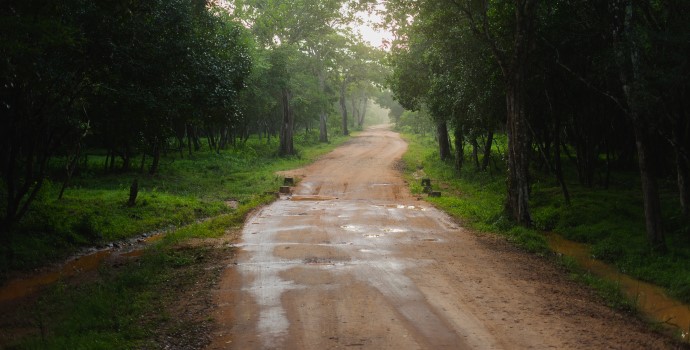- About Us
-
Who we are
-
- Publications
-
- ADPC Academy
-
MediaADPC'S NEWS
Supporting climate resilience and green initiatives through CARE for South Asia project Supporting climate resilience and green initiatives through CARE for South Asia project
4 Nov 2020
Bangkok, Thailand

Divided by geographic boundaries, over 1.9 billion people living in South Asian countries share mountains, rivers, oceans, energy sources as well as weather and vulnerabilities associated with climate change. Therefore, cooperation across borders is critical to meeting the challenges unleashed by the vagaries of weather.
South Asia is an agrarian society with 70% of the region’s population employed in the agriculture sector. Even though 31% of the world’s rice and 18% of its wheat grow in South Asia, it is home to the largest number of undernourished people. According to the Food and Agriculture Organization of the United Nations, the impact of climate change disproportionately affects women who account for about 30 percent of the agricultural workforce in the region.
The development gains in South Asia are already in peril due to the increasing frequency and intensity of floods, cold and heat waves, droughts, wind storms, and cyclones. Approximately 17.5 million people across South Asia have been affected by monsoon flooding in 2020 amid the COVID-19 health crisis. The World Bank estimated that the region has lost US$127 billion in damages to 1000 climate-induced disasters between 1990 and 2019.
“Adaptation is the only effective option to manage the inevitable impacts of climate change that mitigation cannot reduce,” an analysis of South Asia specific findings from the Intergovernmental Panel on Climate Change‘s Fifth Assessment Report (AR5) by Climate and Development Knowledge Network argues. The IPCC describes adaptation as “the process of adjustment to actual or expected climate and its effects”.
South Asian countries have been making great strides to developing climate change policies, national adaption plans, nationally determined contributions to the Paris Agreement, leveraging innovative solutions, and exploring climate financing. Bangladesh, for example, according to the UN Environment Programme, is spending US$1 billion per year for climate change adaptation, which is around 6–7% of its annual budget.
However, the adaptation finance gap and lack of coherent policies, robust institutional setup, and an enabling environment for informed decisions are some of the key challenges for South Asian countries to become resilient to climate change.
In addition, the region’s dependency on interrelated river systems and climate-sensitive sectors such as agriculture, water, natural resources, and environmental security requires regional collaboration to accelerate sector-specific adaptation to changing climate. Given the geo-political situation of the region, an enabling environment needs to be created to foster cooperation and knowledge-sharing.
Climate change is real and humans are making it more complex. Everyone, rich or poor, acknowledges that food price hikes, water scarcity, health crises, energy deficiencies, heatwaves, floods and cyclones are real issues. However, the nexus between climate change and socio-economic issues is yet to be fully recognized both at policy and public level.
In response to these challenges, the Asian Disaster Preparedness Center (ADPC) has initiated the implementation of a World Bank-funded project, Climate Adaptation and Resilience (CARE) for South Asia. The project focuses on enhancing regional collaboration and strengthening national institutions on climate-smart agriculture, integrated water resources management, road infrastructure, and climate finance and planning.
CARE for South Asia aims to create an enabling environment for climate resilience by improving the availability of regional data and knowledge, developing guidelines, tools, and capacities, and promoting climate-resilient decisions, policies, and investments across key sectors. The initiative is expected to improve the technical capacities of institutions in Bangladesh, Nepal and Pakistan, and provide support to policy and investment interventions, climate-risk management solutions and national-level sectoral Decision Support Systems (DSS) for climate resilience.
The project recognizes the need for effective adaptation planning across all sectors, including finance and planning for climate-informed macro-level analysis, modeling, and climate-informed fiscal risk management. It will also help countries access international climate finance, including support accreditation processes for national/sub-national entities to access the Green Climate Fund (GCF).
The five-year initiative is being jointly implemented by ADPC and the Regional Integrated Multi-Hazard Early Warning System for Africa and Asia (RIMES).
Latest NewsRelated Trainings
-